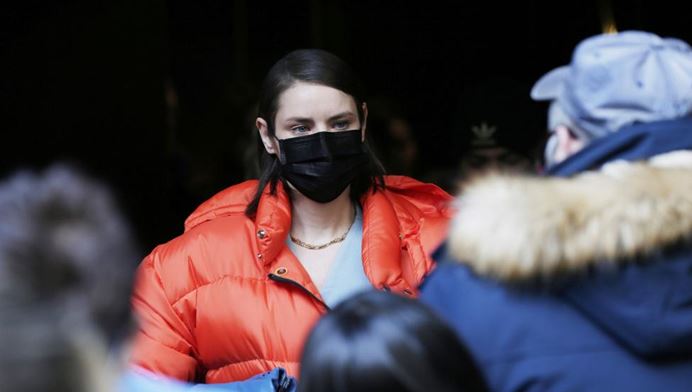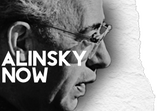|
An Essay by Eric Fretz (efretz@regis.edu)
Regis University, Denver, Colorado In these challenging times, it’s easy to give up hope, to turn away (if we have the privilege to do so) from the chaos of the world and to retreat into our own private worlds. 'The Plague' not only cautions us against doing so, it provides a road map of thought and action to help us navigate the chaos. As Camus writes toward the end of the novel, “There can be no peace without hope."
In May of 1942, Albert Camus was living near the seaside French town of Marseilles with his second wife, Francine Faure, when he was struck with a tubercular fit that left him short of breath and coughing up blood. His physician recommended he head to a drier climate, so Camus packed up his bags and, sans Francine, headed for St. Etienne, a little village in the French Alps, to recover while Francine traveled back to Oran, Algeria where the couple had previously resided.
A few months later, while Camus was recovering in the Alps and Francine was ensconced in Oran, the allied Army landed in North Africa, effectively preventing Camus and Francine from reuniting. In a letter to Francine, Camus expressed his frustration at being precluded from leaving France by declaring that the two were “[c]aught like rats!” And it was in this exile in the French Alps that Camus began in earnest to imagine and write The Plague, a novel that since its publication in 1947, has perplexed readers and critics alike and which is doubly resonant for us today as we face both the pandemic of covid-19 as well as the continued threat of authoritarianism. The first edition of the novel sold out quickly. Since then it’s never gone out of print, and it has been translated into at least 15 different languages. During times of high anxiety like what we are currently experiencing, it’s not unusual for The Plague to be referenced in opinion articles or for the novel to receive a resurgence of interest among readers and cultural critics. The Plague offers a prescription and a road map on how to live our lives at moments when we stand to lose all that we value most, but stand to triumph in a certain way as well.
Specifically, the novel is useful today because it asks and responds to the question of how are we to behave in the face of political, cultural, environmental and, in terms of the current covid-19 pandemic, epidemiological uncertainty.
The novel opens as an undefined contagion descends upon the city of Oran, a seaside town in northern Algeria. Oran, Camus informs us, is a city that is unique for its ordinariness. In other words, what Camus is doing here is setting up the story to suggest that what is about to happen in Oran could happen anywhere. There is nothing exceptional or unique about the place. It is defined neither by extreme decency and goodness nor evil and treachery. It’s Everywhere and Anywhere. Against this backdrop, Camus, introduces a cast of characters who respond to the outbreak of the plague in a variety of ways. For Camus, the measure of the characters’ lives is defined by the manner in which they respond. The novel centers around the main character, Dr. Bernard Rieux, who at the beginning of the novel is just an ordinary physician leading an ordinary life. As the plague grips the city and exacts its horrors on the population, Rieux takes on the responsibility of his profession and his duty as a human being and dives into combatting the disease at all costs. Rieux lives a committed, monastic kind of life dedicated to the eradication of evil and suffering as it manifests in the plague. What’s most compelling about Rieux, though, is that Camus presents him as neither a hero nor a saint. Rieux (whose name in French translates to “laughing), is simply an ordinary man who puts himself at great risk as he takes up the mantle of his responsibility to his fellow citizens. Rieux assembles an unlikely band of friends and collaborators who join him in the effort to combat the virulent disease. His main collaborator, Jean Tarrou, is a relative newcomer to Oran who becomes intimately involved in the warp and woof of the city, especially after the contagion begins to make its way from house to house. Like Rieux, rather than retreating in the face of the oncoming epidemic, Tarrou plunges headlong into the maelstrom. He takes copious participant-observer notes about what is happening in the city, collects and synthesizes data as the plague works its way deeper into the lifeblood of the citizens and develops a set of private and public relationships that he uses to combat the disease. Most importantly, though, as the elected officials, municipal authorities and church leaders haplessly cast about searching for short-term and easy solutions to the problem that is gripping the city, Tarrou establishes what Camus calls ‘sanitary squads,’ or citizen-based, volunteer groups that sanitize plague-stricken homes, accompany physicians on house-to-house calls, aid in the evacuation of the infected, drive the sick to hospitals and the dead to graveyards and maintain copious records of the spread of the disease. Perhaps the most interesting response to the plague is that of a Parisian journalist named Raymond Rambert who has been sent to Oran to write an article on the plight of the Arab population in the city and who gets trapped after the city shuts its gates in an effort to stop the spread of the disease. Rambert is a newcomer to the city and spends the better part of the novel attempting to illegally escape the quarantine on the grounds that he does not belong in Oran--he’s just a stranger passing through who has been trapped by the random, anonymous circumstances of the plague and, so he claims, he has no obligations to Oran or its citizens. Moreover, and perhaps more powerfully, Rambert rationalizes his fanciful escape on the grounds of love; namely, he’s been separated from his Parisian lover and fleeing Oran is a matter of actualizing the romantic love he feels for his missing partner. It’s hard to argue with that kind of fealty, but as the novel progresses, and as Rambert gets increasingly involved with citizens who are trying to salvage life in Oran, he acquires a deeper and more enlightened understanding of obligation and love. Through commitment and self-sacrifice, he attempts to halt the deadly march of the disease and, gradually, his private, romantic love for his partner evolves into a public, civic love for the city and the people of Oran. By the time he is reunited with his lover at the end of the novel, he is worried that when he looks into her eyes, he’ll be looking at a stranger. Rambert, in other words, transcends the narrow (yet pleasurable) confines of eros for the love and obligation to the polis. Camus’ point is that like Rambert, we are all exiles—alienated from each other and the world writ large until we commit to a life of responsibility and action. Camus knew something about the kind of civic love that Tarrou manifests, that Rambert comes to embody and that we all need to embrace now in the face of the covid-19 crisis. When he was recovering in St. Etienne, Camus lived not far from the village of Le Chambon, where Andre and Magda Trocme along with an intrepid group of French Protestant parishioners were involved in a long-standing, risky campaign of harboring thousands of Jews against certain death at the hands of the Nazi occupiers. One of Camus’ biographers, Oliver Todd, for instance, suggests that one of the brave and selfless citizens of Oran (Dr. Rieux) is based on Dr. Robert Le Forestier, an ally of the Trocme’s who was active in the wider French resistance and who was eventually captured and executed by the Nazis. And it’s that kind of love and commitment to individuals as well as the larger polis that animated the Trocmes as well as the narrative pulse of The Plague. When a German officer, for instance, asked Andre Trocme where he was hiding Jews, Trocme famously replied, “We do not know what Jew is. We know only men.” And at just about the same time Trocme was making these pronouncements and acting on them, Camus was writing in his journal, “The misery and greatness of this world: it offers no truths, but only objects for love Absurdity is king, but love saves us from it.” If Camus had a mantra, it would have been “We are alone and together.”
It’s easy in times like these to lose faith in our fellow humans and give up on core values like public safety, health and peace. The Plague offers a case study on the question of hope in seemingly hopeless times. The cosmos, for Camus, is indifferent to us—it doesn’t offer us any signposts of hope and whether we are here, or not, really doesn’t matter. But Camus doesn’t stop there—he argues that it’s up to us, not to some transcendent order, to find meaning and love in our lives.
In The Plague, as well as his other literary and expository writing, Camus expressed a deep and abiding faith that human beings had the power and the ability to create a better world outside of the teachings of the Church and the policies of the State. If Camus had a mantra, it would have been “We are alone and together.” There is, in other words, nothing above to provide salvation and there’s nothing below to condemn us, so that leaves us with each other, and we will make it work or we will allow the whole human project to collapse based on the manner in which we treat each other. And it’s that ethic that shows up again and again in The Plague. Despite the fact that the plague takes the lives of thousands of the citizen of Oran in ghastly, horrific ways and despite the fact that the major institutions of the town are basically inert in the face of the plague, the social order of the city never really breaks down. Sure, there is some violence here and there and, on occasion the citizens of Oran behave badly. But for the most part, the citizens of Oran behave graciously and with dignity as they both live through and seek to push back the contagion. In these challenging times, it’s easy to give up hope, to turn away (if we have the privilege to do so) from the chaos of the world and to retreat into our own private worlds. The Plague not only cautions us against doing so, it provides a road map of thought and action to help us navigate the chaos. As Camus writes toward the end of the novel, “There can be no peace without hope.” As covid-19 cuts its path across the world, we as a people will respond in a variety of ways, none of which are dissimilar from the variety of ways that the citizens of Oran responded to the plague that descended upon their city. Some of us will run and hide, stockpiling goods and resources against the threat of a spreading contagion and a broken social order. Others will disregard the calls of public health officials to engage in social distancing, thereby contributing to the spread of the disease. Others of us will act like Rieux and Tarrou and Rambert and accept the duties and obligations that we have to each other, and see ourselves as citizens who are bound together by love and compassion for the stranger. And maybe, just maybe, we will arrive at Rieux’ insight at the close of the novel when he explains that what we have to learn from the pestilence is “there is more in men to admire than to despise.”
1 Comment
Fabienne C. Melchior
10/25/2022 01:15:26 pm
Love your article on Camus... however, please look at a map and realize that St. Etienne is in the Loire river valley, South West of the big city of Lyon, not in the Alps which is way East of Lyon.
Reply
Leave a Reply. |


